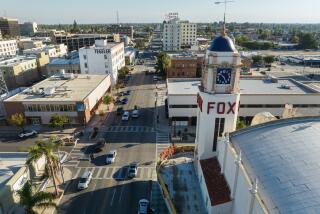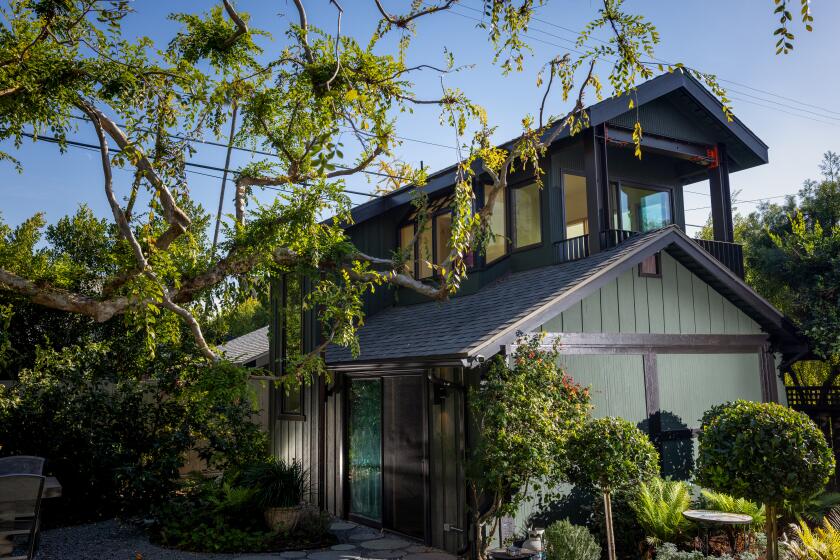A landmark fight in Tujunga
Advocates working on ways to commemorate the World War II detention of Japanese immigrants in La Tuna Canyon learned this week that a developer is taking legal action to reverse the city’s historic-landmark designation of a one-acre plot at the former camp.
“We were stunned,” said Lloyd Hitt, a retired Sunland pharmacist and major driver of the city’s historic designation in late June. “Everything had been going so well. It was a sad moment.”
From 1941 to 1943, the camp held more than 2,000 “enemy aliens,” primarily Japanese, detained there before being sent to internment camps in other locations in California and the West.
Fred Gaines, attorney for developer Snowball West Investments, said the legal filing would not stop efforts to install some type of commemoration on the site at Verdugo Hills Golf Course, just north of the 210 Freeway in Tujunga. Snowball is seeking permission to tear down the golf course and build a 220-unit residential community.
The developer is committed to preserving an oak grove where the main camp stood and erecting a monument recognizing the land’s former life as the U.S. Tuna Canyon Detention Station, Gaines said. Snowball has also agreed to provide public access and a parking lot easily accessed from the 210, he said.
But it objects to the Los Angeles City Council’s June 25 unanimous vote designating a one-acre plot on the property as a historic-cultural monument, the attorney said. Such a designation brings extra layers of scrutiny that could make it more difficult to build homes and roads, he said.
“When you designate something, it requires that anything you do in that area has to go through a process with the city’s Cultural Heritage Commission to get approval,” he said. “Snowball wants to preserve its rights.”
In the rush to get the designation approved during former City Councilman Richard Alarcon’s last week in office, Gaines said, “they drew a squiggly line around a grove of oak trees and said, ‘This is the area.’ We do not believe that was a proper process.”
Alarcon’s motion was approved by the council despite an earlier decision by the city’s Cultural Heritage Commission that the property did not qualify for city historic designation, the attorney noted. The developer is also concerned that opponents of the housing project see the historic designation as a way to block construction of housing.
Hitt acknowledges that some of those pushing for a monument at the site are also opposed to the housing project. But many, including him, are simply looking for a way to remember a chapter in history that shouldn’t be forgotten, he said.
“I would hope that this is just a leverage position to help them get their development approved,” Hitt said of the lawsuit, filed Wednesday. “We have to take them at their word that they want to do this.”
Felipe Fuentes, the area’s new councilman, said he supports “honoring the history there.”
“I’m very supportive of finding a balanced way of preserving it,” he said. “I want to find out the best way to do that.”
--
catherine.saillant@latimes.com
More to Read
Start your day right
Sign up for Essential California for news, features and recommendations from the L.A. Times and beyond in your inbox six days a week.
You may occasionally receive promotional content from the Los Angeles Times.







